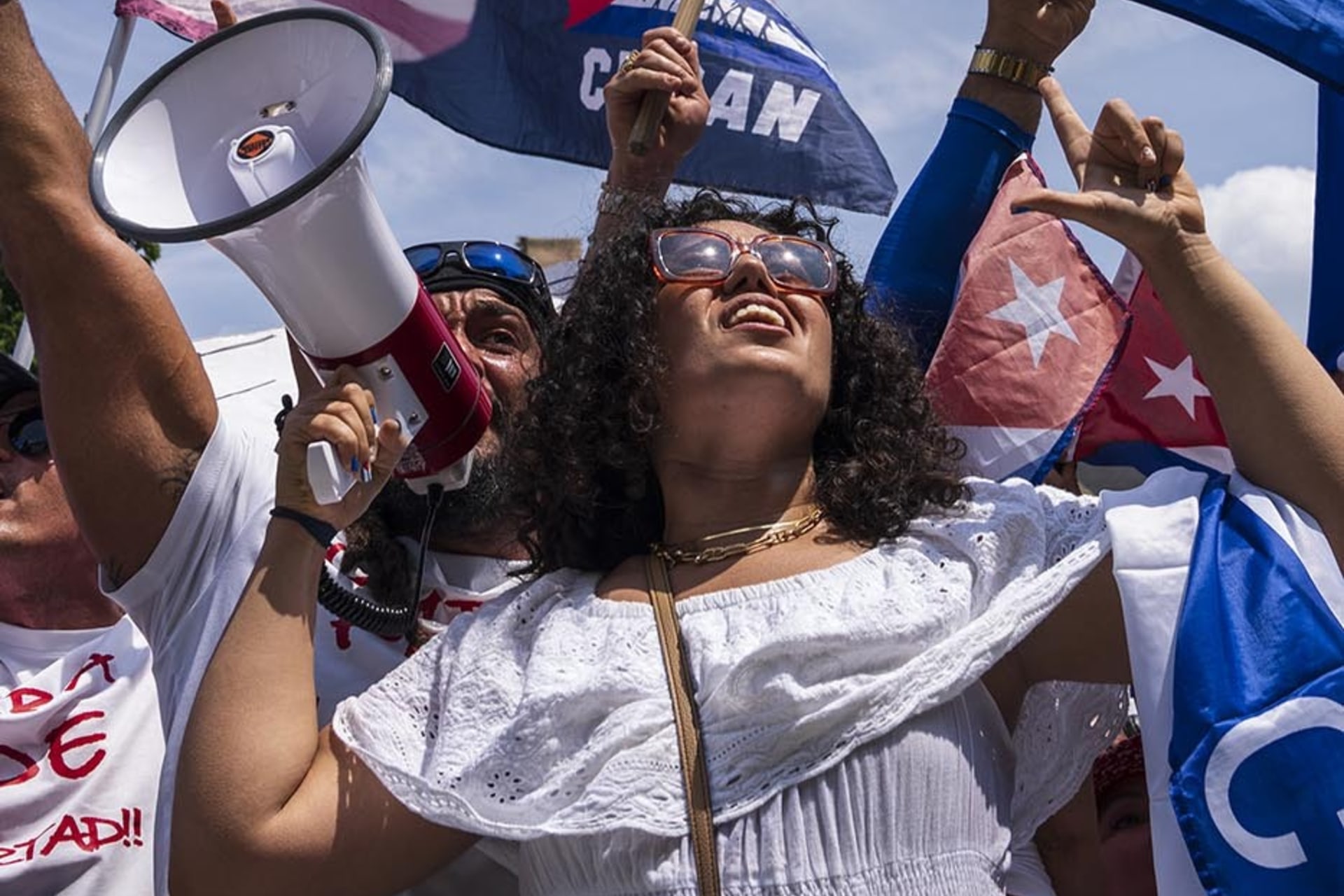IRAQ: U.N. Sanctions
Published
This publication is now archived.
What’s the effect of lifting U.N. sanctions on Iraq?
The United States and Britain will have temporary authority to sell Iraq’s oil, according to a much-amended resolution approved Thursday in a 14-0 United Nations Security Council vote. Oil sales will be overseen by an international monitoring board and take place in consultation with Iraqi leaders. More generally, the resolution removes a sweeping ban on international trade with Iraq, facilitating the country’s re-entry into the world economy.
Was lifting the sanctions controversial?
Yes. Handing control of Iraq and its resources to the United States and Britain will, in the eyes of some, give legitimacy to the invasion of Iraq. Because the invasion did not have Security Council approval, some nations and commentators considered it a violation of international law.
What country didn’t vote for the resolution?
Syria. The nation, the only representative of the Middle East now on the 15-member council, didn’t participate in the vote.
Will the oil sales start soon?
It seems so. There are eight million to nine million barrels of Iraqi oil in storage at the Turkish port of Ceyhan that can be sold immediately, according to Mohammed al-Juburi, the new director of Iraq’s State Oil Marketing Organization.
What were the contentious issues in the sanctions debate?
- U.N. authority. Some Security Council members, including war opponents France, Russia, and Germany, wanted the United Nations to play a leading role in Iraq in order to balance U.S. authority. The amended resolution raises the profile of the United Nations in Iraq and allows a U.N. special representative to work with the United States and Britain to set up new Iraqi institutions. But the United Nations still does not have legal authority over Iraqi reconstruction, and how much influence it will have on U.S. policy remains unclear.
- Weapons inspectors. According to the terms of Resolution 687, which extended 1990 U.N. sanctions on Iraq after the 1991 Gulf War, sanctions cannot be lifted until the Security Council is satisfied that Iraq is free of weapons of mass destruction. The United States has been opposed to the return of the inspectors and has sent its own inspection teams to Iraq. This has been a point of contention between the United States and war foes France and Russia. U.S. officials relented slightly May 20 and said nuclear inspectors could tour Tuwaitha, Iraq’s main nuclear site, to investigate reports of looting there. The approved resolution leaves the door open for the return of U.N. inspectors but does not explicitly call for it.
- Control over Iraq’s oil. The resolution calls for funds from Iraq oil sales--Iraq has some 10 percent of the world’s oil reserves--to go into a U.S.- and British-managed Development Fund for Iraq. The money would be held at the Iraqi Central Bank and monitored by an international board made up of representatives of the United Nations, the World Bank, the International Monetary Fund, and the Arab Fund for Social and Economic Development. The board’s job will be to ensure that Iraqi oil sales benefit the Iraqi people.
- Iraqi debt. The resolution makes the proceeds of the sale of Iraqi oil and natural gas immune from legal challenge until December 31, 2007, unless the Security Council decides otherwise. It indicates that an internationally recognized Iraqi government should be in place by that time and Iraq’s $400 billion debt will be restructured.
Why did war opponents France, Germany and Russia approve the resolution?
The United States and Britain made a number of important changes to the draft, such as strengthening the U.N.’s role in Iraq, reviving the possibility of the return of U.N. weapons inspectors, and permitting the United Nations to review progress in Iraq in one year. But overall, their decision to approve the resolution was seen as a sign that their interest in easing strains with the United States and stabilizing Iraq had overcome their reluctance to appear to endorse the American-led war.
Under the draft resolution’s terms, how long can the United States and Britain retain control of Iraq?
Until an “internationally recognized, representative government is established.” There is no set time limit, though after one year, the United Nations may review the situation and could revoke its blessing of the U.S.-led authority.
What will happen to the Oil for Food Program?
The Oil for Food Program, which allowed Saddam Hussein’s regime to sell oil under strict U.N. guidelines, would end in six months. The U.N. secretary general could, in coordination with the United States and the Iraqi interim authority, elect to honor contracts already approved under the U.N. program. This is a particularly important issue for Russia: of the $10 billion now in the program, some $1.5 billion is thought to be earmarked for work contracted with Russian companies.
What is the Oil for Food Program?
It allows Iraq to sell a limited amount of oil to pay for food, medicine, and other civilian needs. About $27 billion has been spent through the program since 1995. Experts estimate that, before the war began, 60 percent of Iraqis relied on Oil for Food for assistance. Its current authorization expires June 3.
Why were the sanctions imposed?
The sanctions regime was first established in U.N. Security Council Resolution 661 after Iraq’s August 1990 invasion of Kuwait. That resolution barred Iraq from engaging in most international trade. After Iraq was driven from Kuwait, the sanctions remained in place, to pressure Baghdad to surrender its weapons of mass destruction. A major modification occurred in April 1995, when the Security Council approved Resolution 986, which established the Oil for Food Program.
What other sanctions have been lifted?
Two weeks before the United Nations voted to lift sanctions, the United States suspended its own 1990 Iraq Sanctions Act, which restricted the export of many goods, such as high technology products. This will allow U.S. companies under government contract to import goods to Iraq, such as laptop computers, that the United States deems necessary for Iraq’s reconstruction. Second, it has relaxed rules which prohibited U.S. companies and individuals from engaging in trade with Iraq.
What can U.S. individuals and companies now do?
According to the U.S. Treasury Department, they can:
- Send up to $500 per month in remittances to anyone in Iraq.
- Engage in any commercial work contracted by the U.S. government.
- Send in any humanitarian goods if under U.S. government contract.
- Send charity items privately, but subject to United Nations review.
Weapons sales to Iraq remain prohibited under U.S. and U.N. rules.t
Colophon
Staff Writers
- Sharon Otterman





